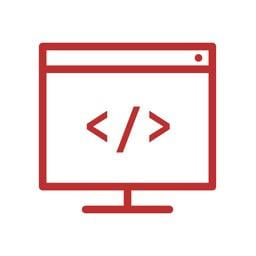Migrating from PHP 7 to PHP 8: A Complete Walkthrough with Code Examples and Compatibility Tips
Migrating from PHP 7 to PHP 8: A Complete Walkthrough with Code Examples and Compatibility Tips
Introduction
PHP 8 introduces several performance improvements, new features, and changes that require careful consideration when migrating from PHP 7. In this guide, we'll walk through the key differences, compatibility challenges, and best practices for a smooth transition.
Why Upgrade to PHP 8?
PHP 8 offers significant enhancements, including:
- JIT (Just-In-Time) Compilation: Improves performance for computational-heavy tasks.
- Named Arguments: Enhances readability and flexibility in function calls.
- Union Types: Allows specifying multiple types for function parameters and return values.
- Attributes: Provides a cleaner way to add metadata compared to PHPDoc.
- Match Expressions: More concise and powerful alternative to switch statements.
- Nullsafe Operator (
?->): Reduces null-check boilerplate code.
Pre-Migration Checklist
Before migrating, consider the following:
- Check PHP 8 Compatibility of Dependencies: Use
composer outdatedto check for updates. - Update Composer Packages: Ensure all packages support PHP 8.
- Run a Static Code Analyzer: Tools like PHPStan or Psalm can help detect issues.
- Enable Error Reporting: Ensure all warnings and deprecations are addressed before upgrading.
- Test in a Staging Environment: Avoid direct changes in production.
Breaking Changes and Fixes
1. Changes to Function Signatures
Several core functions have updated signatures, which may cause issues. For example:
PHP 7 Code:
function myFunction($arg1, ...$args) {}
PHP 8 Fix:
function myFunction(mixed $arg1, mixed ...$args) {}
2. Type Changes and Union Types
PHP 8 enforces stricter type checking in various areas. Consider this example:
PHP 7 Code:
function add(int $a, int $b) {
return $a + $b;
}
echo add("3", "5");
PHP 8 Fix:
function add(int $a, int $b): int {
return $a + $b;
}
echo add(3, 5); // Ensure correct types
3. Deprecated Features
Some deprecated features in PHP 7 are removed in PHP 8:
create_function()is no longer available. Use anonymous functions instead.- Magic quotes-related functions have been removed.
each()function has been removed; useforeachinstead.
4. match Expression Instead of switch
PHP 7 Code:
switch ($status) {
case 1:
$message = "Active";
break;
case 2:
$message = "Inactive";
break;
default:
$message = "Unknown";
}
PHP 8 Fix:
$message = match ($status) {
1 => "Active",
2 => "Inactive",
default => "Unknown",
};
5. Nullsafe Operator (?->)
PHP 7 Code:
if ($user && $user->profile && $user->profile->address) {
$city = $user->profile->address->city;
}
PHP 8 Fix:
$city = $user?->profile?->address?->city;
Testing the Migration
After updating your code, ensure thorough testing:
- Unit Tests: Run PHPUnit to check functionality.
- Static Analysis: Use PHPStan or Psalm to identify issues.
- Benchmark Performance: Compare execution times before and after migration.
- Check Logs: Monitor for unexpected errors.
Conclusion
Migrating from PHP 7 to PHP 8 provides numerous benefits, but it requires careful preparation. By following this guide, you can ensure a seamless transition while leveraging the latest PHP 8 features for improved performance and maintainability.
Easyupload - How Website Speed and Performance Impact Your Business Optimization Tips for a Faster Website
4shared - How Website Speed and Performance Impact Your Business Optimization Tips for a Faster Website
Depositfiles - How Website Speed and Performance Impact Your Business Optimization Tips for a Faster Website
Files.fm - How Website Speed and Performance Impact Your Business Optimization Tips for a Faster Website
Uploadnow - How Website Speed and Performance Impact Your Business Optimization Tips for a Faster Website
Mediafire - How Website Speed and Performance Impact Your Business Optimization Tips for a Faster Website
Btafile - How Website Speed and Performance Impact Your Business Optimization Tips for a Faster Website
Dz4up - How Website Speed and Performance Impact Your Business Optimization Tips for a Faster Website
Dosya - How Website Speed and Performance Impact Your Business Optimization Tips for a Faster Website
Filefactory - How Website Speed and Performance Impact Your Business Optimization Tips for a Faster Website
Scribd - How Website Speed and Performance Impact Your Business Optimization Tips for a Faster Website
Slideserve - How Website Speed and Performance Impact Your Business Optimization Tips for a Faster Website
Docs Google - How Website Speed and Performance Impact Your Business Optimization Tips for a Faster Website




Comments
Post a Comment